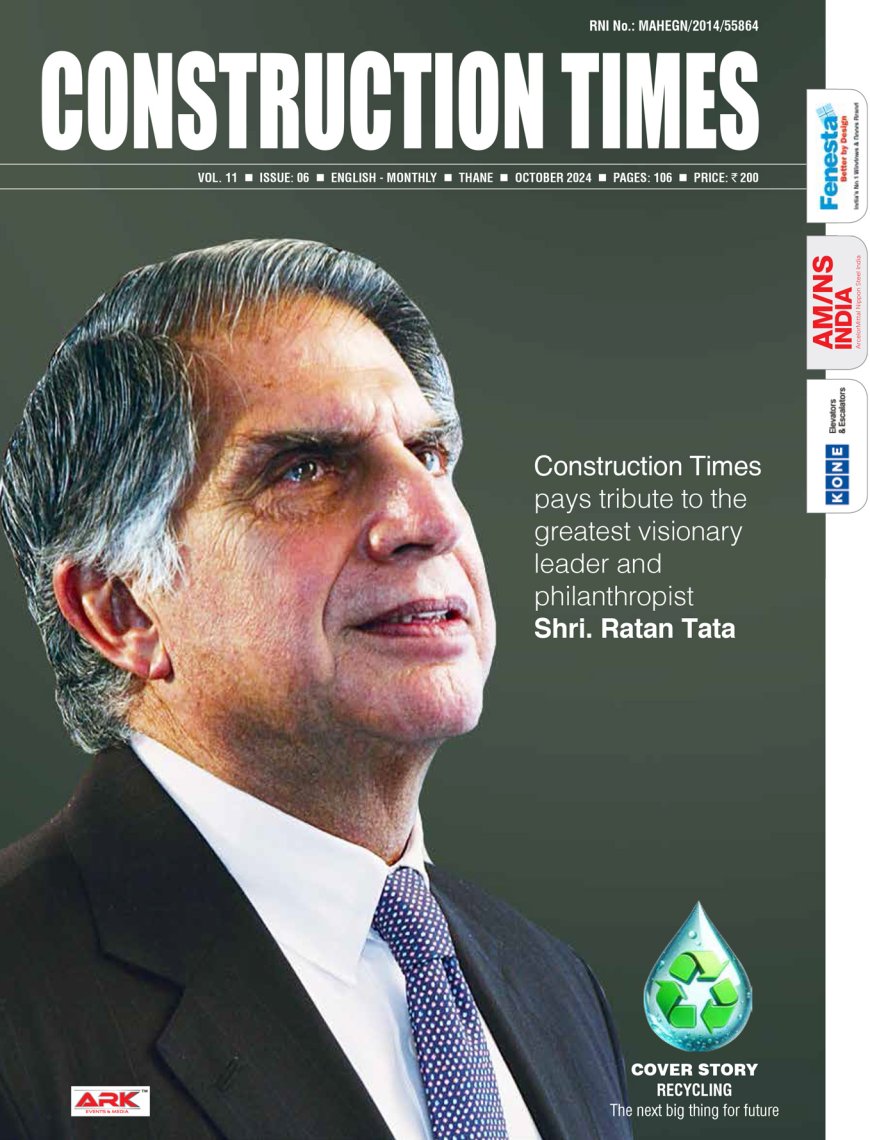Best practices must be designed that increase efficiency and mitigate risks
Aparna Constructions is at the forefront of using digital tools to enable sustainable construction practices. - Rakesh Reddy, Director, Aparna Constructions Pvt Ltd. What is your assessment on opportunities of transforming the construction industry more automated and digitalized? The Covid-19 pandemic has forced digital transformation upon the real estate sector as provisions for day-to-day operations

Aparna Constructions is at the forefront of using digital tools to enable sustainable construction practices.
- Rakesh Reddy, Director, Aparna Constructions Pvt Ltd.
What is your assessment on opportunities of transforming the construction industry more automated and digitalized?
The Covid-19 pandemic has forced digital transformation upon the real estate sector as provisions for day-to-day operations taking place remotely will have to be considered. This includes administration, procurement, marketing, training and recruitment activities.
Real estate developers will have to provide guidance on setting up virtual workspaces. With the benefits of tapping into a geographically diverse talent pool, HR managers will increasingly explore how to make remote working part of their company's culture. The sector will have to introduce technology-based systems such as e-learning into their training and development programmes. This means incorporating personalised micro-learning, gamification, virtual reality, and augmented reality for corporate learning.
The technology behind standard construction industry practices such as ERP and project management is rapidly evolving. Old processes are being disrupted by new technologies that did not exist a decade ago including automation and big data. Best practices must be designed that increase efficiency and mitigate risk. Since approximately 80% of savings results from stages prior to construction, addressing inefficiencies in vendor management and bid management processes is vital.
One of the key principles of procurement is the use of automation across the entire process from planning and strategy to selection and contract management. Automation at the bid level can help manage the aggregation and analysis of incoming data.
It helps create a smart system that can quickly determine cost savings and opportunities. The objective is to engage with as many bidders as possible to ensure diligence and widen the pool of suppliers. Automation helps manage this ecosystem. It also creates a transparent system that makes it easy to move from a macro view of projects to micro details on bids, documentation, reviews, and conversions.
What contributory role your company has been playing for this transition?
Aparna Constructions has a robust IT infrastructure. We have been able to create virtual workspaces for our teams. For most activities, work is continuing without significant interruption. Our teams communicate via online chat, email, tele-conferencing and video-conferencing.
Putting the customers first has always been the driving force of Aparna Constructions and data helps the company accomplish this. Big data plays a major role in our planning and design of digital marketing initiatives.
The company website is a comprehensive platform for its multiple projects in different cities and locations. The website provides users with a wide range of choices, in a mobile-first approach, by providing each user with a personalized web experience. We utilise virtual 3D walk-throughs of our projects which gives an immersive experience. We use photos and videos to show the status of each project so buyers have an updated view on progress.
Aparna Constructions is also at the forefront of using digital tools to enable sustainable construction practices in India. The global impact of the construction industry means that a top priority is to create more sustainable buildings and structures. Drone footage of construction sites, combined with advanced analysis and design methodologies, allow the construction of increasingly more efficient buildings with minimal environmental impact.
Building Information Modelling has also been a growing trend and is now a necessity in the industry. Energy modelling tools can optimize a building's architecture and layout, so efficiency is integrated into the design. This maximises the natural light, improves resource allocation and optimises energy management. The goal for the construction industry must be to improve the lives of residents and overall community, while safeguarding the environment. Technology plays a big role in these efforts.
Hits: 19















